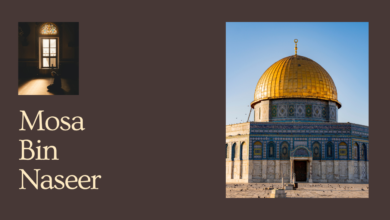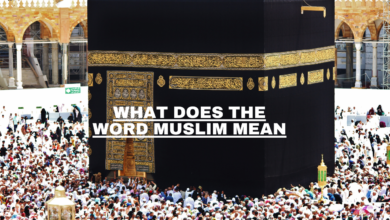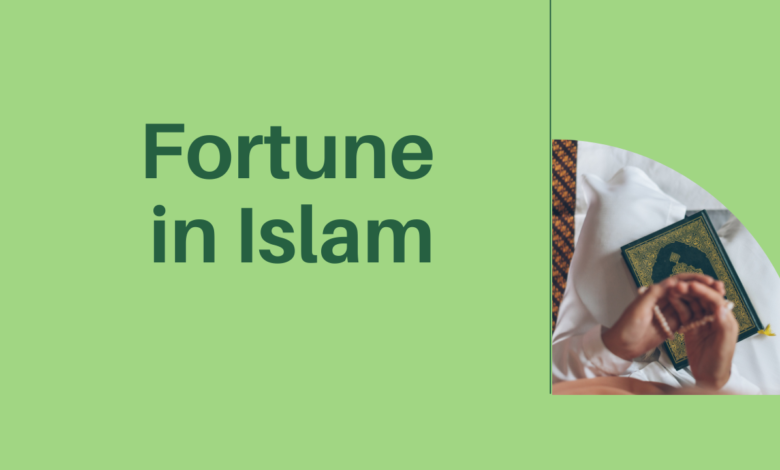
Fortune in Islam
Qadar is the Islamic concept of divine preordainment, where God has predetermined the course of events and the destiny of every individual. It relates to fortune in that it encompasses the belief that one’s wealth and life circumstances are part of God’s plan.
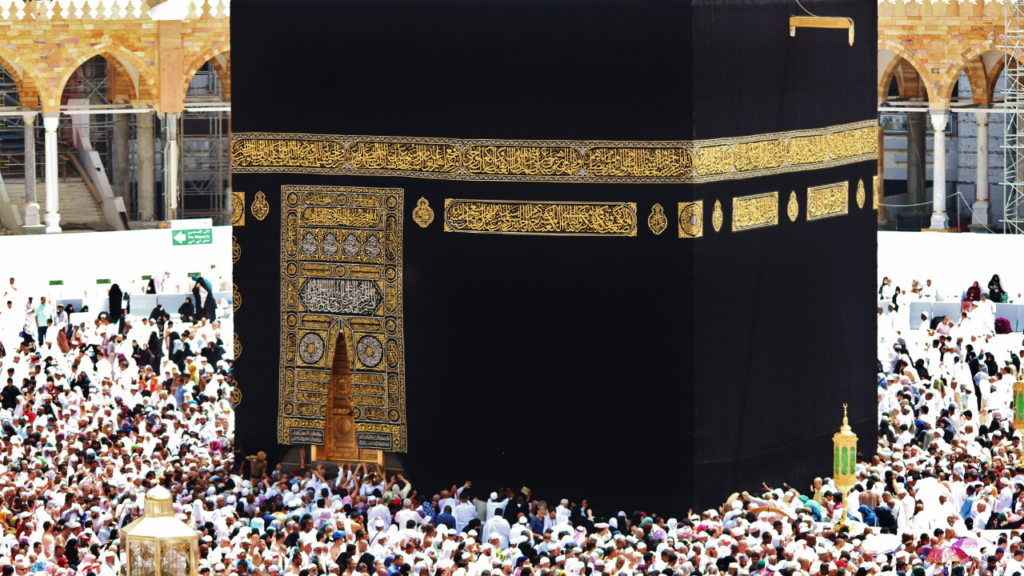
Introduction
Fortune, wealth, and destiny are concepts that have fascinated humanity for centuries. In the context of Islam, these themes take on a unique significance. Islam provides a comprehensive framework for understanding and managing one’s fortune, emphasizing the importance of faith, hard work, and gratitude. This article explores the Islamic perspective on fortune and how it guides Muslims in their pursuit of wealth and destiny.
The Islamic Concept of Qadar
In Islam, the concept of Qadar, or divine preordainment, plays a pivotal role in understanding one’s fortune. It is the belief that God has predetermined the course of events and the destiny of every individual. Muslims are taught to place their trust in Allah’s wisdom and accept whatever comes their way as a part of God’s divine plan.
Qadar is a multifaceted concept that includes four main components:
- Knowledge: Allah possesses complete and perfect knowledge of everything, past, present, and future. This knowledge includes the individual’s life span, sustenance, and the trials and tribulations they will face.
- Writing: The second aspect of Qadar involves the recording of every individual’s fate in the Preserved Tablet. This is done by the angels and is, therefore, beyond human control.
- Will: Allah’s divine will is the third component, meaning that nothing happens without His permission. It is believed that everything occurs according to His divine will and plan.
- Creation: The final component involves the physical creation of what has been decreed by Allah. Everything comes into existence in accordance with His divine decree.
Also check.
- Which types of Clothes are Haram on Men?
- What does Jesus Eat?
- What is Hinduism Religion?
- What’s the difference between Catholic and Christian?
- What is Jihad?
Hard Work and Initiative
Islam encourages hard work and taking initiative in seeking wealth and success. The Prophet Muhammad (peace be upon him) emphasized the importance of earning a livelihood through honest labor. In Islamic tradition, it is often said that “tie your camel, and then trust in Allah.” This means that while one should put in effort, they must also rely on God’s wisdom.
Muslims are encouraged to engage in lawful and ethical means of earning a livelihood. This aligns with the teachings of the Quran, which prohibit earning money through deceit, fraud, or any unethical practices. Ethical wealth creation is considered virtuous in Islam, and individuals are encouraged to invest in their skills and abilities to provide for themselves and their families.
Charity and Sharing Wealth
Wealth, according to Islamic teachings, is not meant to be hoarded selfishly. Muslims are obliged to share their fortune with those less fortunate. This obligation is encapsulated in the concept of Zakat, which is a mandatory form of almsgiving. It is typically calculated as 2.5% of a Muslim’s savings and investments, and it is intended to help the poor and those in need.
The Quran encourages charity, emphasizing that spending in the way of Allah is an investment in one’s future and a means of purifying one’s wealth. This sense of social responsibility reflects the idea that wealth is a test from God, and how one manages it is a critical aspect of their faith.
Gratitude and Contentment
One of the key teachings in Islam regarding fortune is the importance of gratitude (shukr) and contentment (qana’a). Muslims are encouraged to be thankful for what they have and to find contentment in their current circumstances. Gratitude is seen as a means of increasing one’s blessings, while discontentment can lead to ingratitude and unhappiness.
The Quran mentions, “If you are grateful, I will surely increase your favor; but if you deny, indeed, My punishment is severe” (Quran 14:7). This verse highlights the importance of being thankful for one’s fortune, as gratitude can lead to an increase in blessings.
Conclusion
In Islam, fortune is a concept deeply intertwined with faith, hard work, gratitude, and the belief in divine preordainment (Qadar). Muslims are encouraged to seek wealth through lawful and ethical means, share their fortune with those in need, and find contentment in their current circumstances. Understanding one’s fortune in the context of Islamic teachings provides a holistic framework for leading a fulfilling and prosperous life that aligns with one’s faith and values.
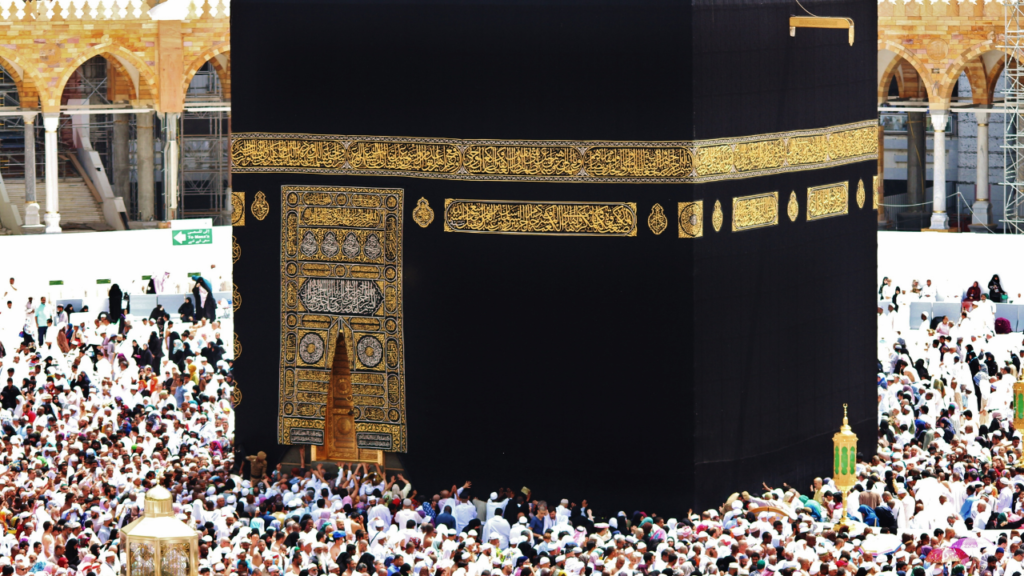
FAQs
What is Qadar in Islam, and how does it relate to fortune?
Qadar is the Islamic concept of divine preordainment, where God has predetermined the course of events and the destiny of every individual. It relates to fortune in that it encompasses the belief that one’s wealth and life circumstances are part of God’s plan.
Does Islam encourage seeking wealth and success?
Yes, Islam encourages hard work and taking initiative to seek wealth and success through lawful and ethical means. The Prophet Muhammad emphasized the importance of earning a livelihood through honest labor.
What is the significance of ethical wealth creation in Islam?
Ethical wealth creation is seen as virtuous in Islam. Muslims are encouraged to invest in their skills and abilities to provide for themselves and their families while avoiding deceit, fraud, or unethical practices.
How does Islam promote sharing wealth with the less fortunate?
Islam promotes sharing wealth through the concept of Zakat, a mandatory form of almsgiving that is typically calculated as 2.5% of one’s savings and investments. This obligatory act of charity helps support the poor and those in need.
What is the role of gratitude and contentment in Islamic teachings about fortune?
Gratitude (shukr) and contentment (qana’a) are essential in Islam. Muslims are encouraged to be thankful for what they have and find contentment in their current circumstances. Gratitude is seen as a means of increasing one’s blessings.
Can Muslims actively plan for their future while believing in divine preordainment?
Yes, Muslims are encouraged to plan and work toward their goals while maintaining faith in divine preordainment. The Islamic principle is to “tie your camel and trust in Allah,” which means putting in effort while ultimately relying on God’s wisdom.
Is there a specific method for calculating Zakat, the obligatory charity in Islam?
Zakat is typically calculated as 2.5% of one’s savings and investments, which should be given to the poor and those in need. Different Islamic communities or scholars may provide guidance on how to calculate and distribute Zakat.
What does the Quran say about fortune and wealth?
The Quran contains numerous verses that address fortune, wealth, and their significance. One such verse emphasizes the importance of gratitude: “If you are grateful, I will surely increase your favor; but if you deny, indeed, My punishment is severe” (Quran 14:7).

